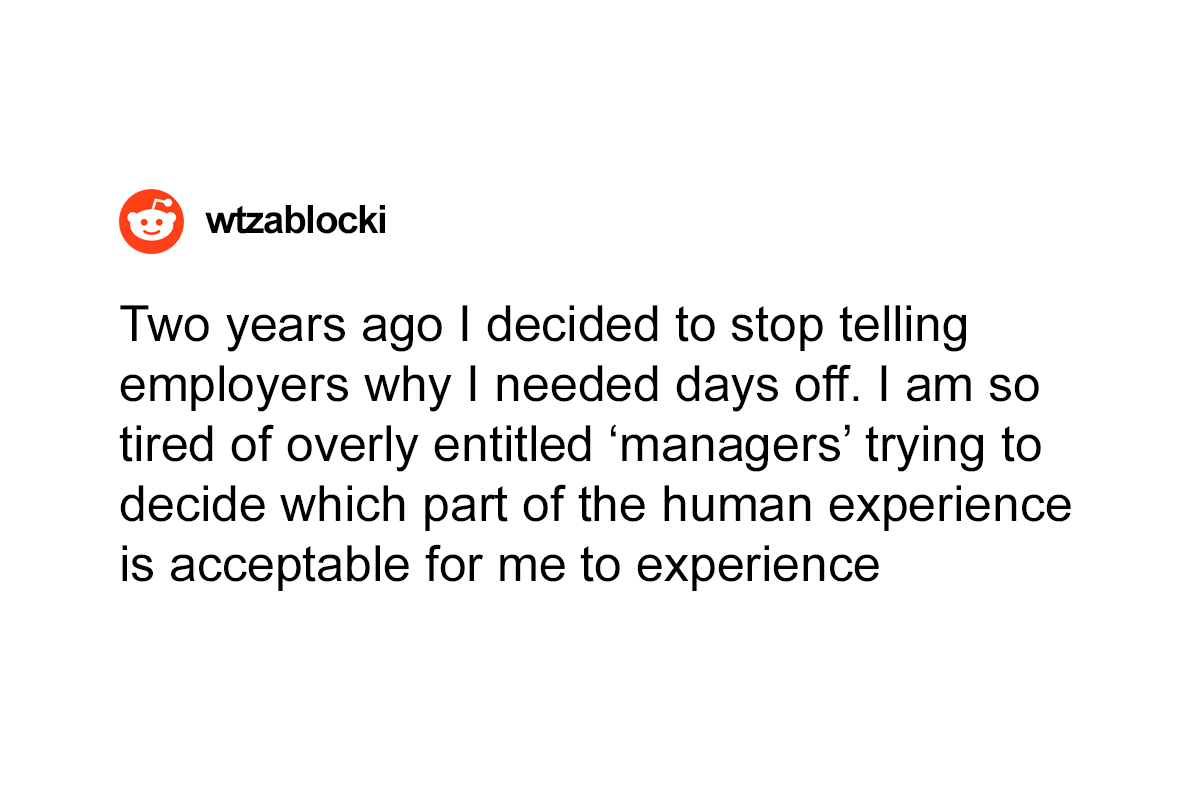
Person Explains Why He Stopped Telling Bosses Why He Needs A Day Off And Why There’s Nothing They Can Do About It
By focusing on the things that we control, we can make adjustments that greatly benefit our mental well-being.
Reddit user Wtzablocki submitted a story to the platform’s ‘Antiwork’ community, detailing how they improved their work life. And the beautiful aspect of it is that the change didn’t require all that much effort.
All that Wtzablocki did was they stopped explaining themselves to their employer whenever they wanted time off.
It sounds simple, but the dignity that comes from understanding that you are the boss of you can tremendously impact your sense of worth.
This person was sick and tired of work creeping into their private life and vice versa
Image credits: Monstera (not the actual photo)
So they made one simple adjustment, and it helped tremendously
Image credits: RODNAE Productions (not the actual photo)
To learn more about our desire to be in control of our life, we contacted social science writer and researcher Jeremy Sherman, Ph.D., MPP.
“A sense of control is important but perhaps not as important as having a sense of what we do and don’t control,” Sherman, the author of Neither Ghost nor Machine: The Emergence and Nature of Selves, told Bored Panda. “A sense of control is double-edged. We want control but we dread responsibility if we fail, like if we chose our life’s path and it turned out terrible. I call that the ‘free willies.'”
“People think they want free will, not determinism. What they really want is a ratchet, freedom to rise, and determinism to keep them from falling.”
You could even make the case that we humans tend to voluntarily abandon the driver’s seat. “It turns out that throughout evolutionary history, we’ve been giving up control when it’s advantageous to us. I call it lazy gene theory,” Sherman said.
“For example, humans are addicted to external vitamin C, when hardly any other mammals are. (You don’t have to give your cat oranges.) About 35 million years ago, we got up in trees where there was abundant fruit. We no longer had to make our own vitamin C. We lost the ability and now we’re addicted to external vitamin C. It’s the genetic equivalent of no longer having to remember phone numbers or read maps because we’re addicted to our phones.”
“These days, people feel way more independent than in the old days, but in fact, we’re way more dependent, just on really reliable infrastructure,” Sherman said. For more information on the topic, check out this short but comprehensive video by the researcher.
If you feel like you need to regain power over yourself, Sherman suggests “doing a Marie Kondo on your addictions.”
“Keep the addictions you want and not the addictions you don’t. For example, I love most of my addictions. I work to keep them going and they feed me. In the old days, my addictions would often clash. For example, I really wanted to write and speak honestly and I really wanted a relationship. I wanted a relationship with a hot subordinate partner, and I really wanted an equal.”
“I’m 66 now. About 8 years ago, I realized I no longer wanted a partner. I wanted my mind back from the tension inherent in a relationship, the way that to feel safe in intimacy, you want total honesty and total affirmation which, after the honeymoon period, are often at odds.”
“I somehow gave up my addiction to having a partner,” Sherman said. “I regained control over what I could think and write. I ‘got my mind back,’ maybe in part by admitting to myself that I was too mouthy for a partner to feel safe with me. I joke that I’m glad my lack of appetite finally caught up with my lack of aptitude.”
Interestingly, Sherman believes love and addiction are virtually the same thing, just with different prognoses. “With both, you’re doing dedicated work to maintain something you depend upon (e.g. paying for your cell phone so you don’t have to remember numbers or read maps, getting Vitamin C from an outside source, or keeping your partner happy),” he explained.
“The difference between love and addiction is whether you think it’ll turn out well. For example, if you think your buddy’s relationship is bad for them, you’d say ‘dude, you’re addicted’ and if you think it will turn out well, you’d say ‘you’re in love.'”
So if you want to regain control, shed an addiction. “I have a rule: ‘I can’t change myself but I can often change my environment so it changes me,'” Sherman said.
And when you think about it, this is exactly what Wtzablocki did.
As the story went viral, it also prompted a discussion on work-life balance
This is such a bizarre concept to me. I have 30 days paid days off and never ever have I been asked as to why I need the time off, other then a casual "doing anything fun?" question, let alone been required to deliver an explanation. Quite the reverse even as managers sometimes have to remind people to take their time off before the year ends. Sure, sometimes we have to rearrange our holidays, because not all colleagues can be off at the same time, but other than that it is fine. But then I live in "socialist / communist" Europe with at least 20 paid days off required by law, lol :)
I am a manager of a group of highly skilled senior engineers within a large company in Australia. We have a number of guidelines we follow, but as managers we can also use our own discretion to make decisions. (before we take the role of managers we take mandatory mindfulness training) One of the most important company wide mandates is to ensure that each and everyone that works in our firm has a healthy Work/Life balance. That means that if a person asks for time off, as managers, we actively support it without asking any questions. We also discourage anybody working after 5:30pm as we consider that as family time, unless that work cannot be done over normal time, in which case we would let the employee who worked out of hours take the next day off (or any other day of their choosing) as time in lieu. I treat the people that I manage that work WITH me (not for me) as adults, because they ARE adults and hence we find that people are FAR more happy and productive at work.
When I was a manager, I never questioned why any of my directs wanted some time off. Sometimes they would tell me, and sometimes they wouldn't. I would often ask them, "Doing anything fun?" but that was it. And if they didn't want to venture any information, that was totally acceptable as well. My job as their manager was to make sure they didn't get disturbed during their time off.
Manager of a medium company. About six years ago I changed our policy for separate sick and vacation time in to a single PTO pool. I call it a no fault time off. You want time off, awesome you are an adult and I trust you. I trust you to help run my business why wouldn't I trust you to be responsible for deciding when to take time off. I hated having to deal with people justifying time off. Unless you are truly sick or dealing with a major tragedy and need help as a human being, I don't care why you didn't come in. Kid's concert, have at it. Mental health day, enjoy. Sick, get better soon. Cancer scare, how are you doing, can we help you, take the time you need.
You're in the US, right? The concept of a shared time off pool is equally odd to me. I have my 28 days holiday, it whatever it is, I forget, and if I'm sick, I'm sick. That doesn't come off my holiday. I just call in sick and day "Sorry, I'm not well, I'm not coming in". If it extends past 6 days I will need a doctor's note, but nothing comes off my holiday.
Load More Replies...Americans and their Freedoms. Can't imagine having to explain why I need a day off. Do you guys even get mandated time off?
I had brain surgery a couple of years ago. I had been at my job for close to 3 years at that point. While I was out of the office, my office manager reassured my husband and me that my position would be there once I was well enough to go back, even expressing concern that I get better. Well, after being home for only 1-2 days, I was called by said manager and had my job threatened. Apparently she "couldn't handle it". I'm thinking ok, I just had brain surgery, I literally cant see straight, but sure, I'll come back to appease you. I'm doing so much better now, even started a new job where people care about others.
In the US military, 30 days of leave per year is a right granted by the Congress. It is even written in the Military Personnel Manual that commanding officers have failed if all their personnel can't use all 30 days in a year and there isn't a valid operational reason (paraphrased). Enlisted members still have to route a request that includes the words "respectfully request" and this request, depending upon the member's position may have 10 or more people that have to recommend the leave. If you don't put the request in at least 10 business days in advance, your chances are slim, even though legally the commanding officer is the only person who can say no to any member's official request. On the flip side, anything medical/dental/mental never counts against leave balance. Bright spot: there was once a department head who told his subordinates they had ten days to look at a member's request, then he was automatically approving it if they hadn't commented. That DH was the best
Yeah... In Europe 30 days, it thereabouts, is standard for all.
Load More Replies...My wife worked for a company years ago that part of their business was fulfillment; before Amazon was a big thing. She was the director of the fulfillment section. She processed all the orders, billing, inventory etc. After a year she finally decided to take a vacation for a week. When she came back, there was a foot high stack of work on her desk. Nobody did any aspect of her job when she was gone. Her boss comes in and said that she had to have all of it done by the end of the week in addition to the current week's work. Worse yet, she was salaried (overtime exempt). She had to put in 72 hours that week. She asked, "What is the point of time off if you're going to have to do all of the work anyway?" She left not long after.
I don't know if it's because I work for the government or a much more friendly environment but at my job no one asks why people are taking a day off. I just started at this job few months ago and my direct report left a couple of weeks later for a scheduled two month paid family leave. I was dying to know why but I knew as a manager and a coworker that not only was it none of my business, it was also not allowed. People kept referring to it as family leave instead of medical leave so I knew she was ok. I only found out it was to care for her elderly mother when she forwarded a work email to us and my boss thanked her, told her we missed get, and hoped her mother was doing well. She comes back in a week and the only thing I will do is tell her we missed her and catch her up on everything.
When I worked in an office, before being self employed, the problem wasn't the manager, it was the work colleagues (it was polite to let them know so we took over daily tasks for each other). One of them would go all spanish inquisition on me until I told her exactly why I was taking a day off! She was a nice lady mostly, but stuck her nose on everyone's business. After a while I'd just say "dentist appointment". She either thought I had rotten teeth or didn't get the message, 5 years I was there, she'd ask every bloody time.
... then you get the people who schedule assignments to you exactly during your time off. During a time when you have clearly stated "I am not here from this date to this date inclusive. I will be back to work on this day" And when you come back... it's "Ohhh we hadn't heard from you... how is that assignment?" when I say "I am seeing it right now and I consider this day one of the assignment since this was assigned during my time off, which you KNEW." Suddenly I'm suspended and ... oh look at that... AAALLL My previous work (which was previously accepted, approved and even complimented) is now absolute sh-- that needs to be redone.... oh... and I'm suspended.
The American mindset on this is baffling to most of the world. You have holidays due: you take them - obviously ensuring cover with others that want time off. Even then if you have given notice and it has been agreed they do not get the opportunity to say NO unless they offer massive compensation and even then it is your choice. I am sure it is not true but these posts give the impression Americans just do as they are told - why else would a post like this even be posted?
I texted my boss on a early Sunday evening (5-6ish) to let him know I would not be in the following day. I was blasted with texts "why?" "Can you reconsider" "why" followed by "I'm not supposed to ask but why?" Screw you! Even if I don't have remaining PTO (which I did) I cannot make it in. Provided plenty of time announcing my absence. After a "wonderful" promotion (hahaha no longer there, same place) I respected the required 2 weeks minimum requesting time off w/approval. Asked for a day off 3 weeks ahead. My boss informed me I had to be on call - even though I would be using my PTO time and had requested in advance because he was taking the day off as well (which I did not know) And asked why. NONE OF YOUR BUSINESS. Which I did not know. Like OP stated- if things fall apart in a matter of 1 day due to my absence I'm being seriously underpaid.
I have urgent personal business. Can't it wait? No it is urgent. What is it? It is personal.
Dude. What are you doing. If we talk about it where they can see it they're going to change the rules
I have had problems like this before. As the sole liaison with the government for my company, people pretty much look for me when they need something from our version of Uncle Sam. It got to a point where they even requested that I stay within the vicinity of the office and try to be on call through my vacation days. Flat out told them NO and said I'd be happy to take this to our local Labour Union Office if they persist (there are people who have done this in my office before). Eventually they had to settle for just being able to call and inquire about procedures dealing with the government, and even that was tiresome sometimes. Thank goodness management has been revamped and this c**p is now a thing of the past.
Look...use your paid time off. Go for it. BUT, go to work every day on time, do you work, go home on time. Take your sick days. But once you're out of paid time off and still not arriving for work, expect consequences. I agree with, "I'm unable to be at work today." No more, no less. Your peers have to carry your load when you're out, so you better make sure you're there for them when they're out. Nuff said.
This is such a bizarre concept to me. I have 30 days paid days off and never ever have I been asked as to why I need the time off, other then a casual "doing anything fun?" question, let alone been required to deliver an explanation. Quite the reverse even as managers sometimes have to remind people to take their time off before the year ends. Sure, sometimes we have to rearrange our holidays, because not all colleagues can be off at the same time, but other than that it is fine. But then I live in "socialist / communist" Europe with at least 20 paid days off required by law, lol :)
I am a manager of a group of highly skilled senior engineers within a large company in Australia. We have a number of guidelines we follow, but as managers we can also use our own discretion to make decisions. (before we take the role of managers we take mandatory mindfulness training) One of the most important company wide mandates is to ensure that each and everyone that works in our firm has a healthy Work/Life balance. That means that if a person asks for time off, as managers, we actively support it without asking any questions. We also discourage anybody working after 5:30pm as we consider that as family time, unless that work cannot be done over normal time, in which case we would let the employee who worked out of hours take the next day off (or any other day of their choosing) as time in lieu. I treat the people that I manage that work WITH me (not for me) as adults, because they ARE adults and hence we find that people are FAR more happy and productive at work.
When I was a manager, I never questioned why any of my directs wanted some time off. Sometimes they would tell me, and sometimes they wouldn't. I would often ask them, "Doing anything fun?" but that was it. And if they didn't want to venture any information, that was totally acceptable as well. My job as their manager was to make sure they didn't get disturbed during their time off.
Manager of a medium company. About six years ago I changed our policy for separate sick and vacation time in to a single PTO pool. I call it a no fault time off. You want time off, awesome you are an adult and I trust you. I trust you to help run my business why wouldn't I trust you to be responsible for deciding when to take time off. I hated having to deal with people justifying time off. Unless you are truly sick or dealing with a major tragedy and need help as a human being, I don't care why you didn't come in. Kid's concert, have at it. Mental health day, enjoy. Sick, get better soon. Cancer scare, how are you doing, can we help you, take the time you need.
You're in the US, right? The concept of a shared time off pool is equally odd to me. I have my 28 days holiday, it whatever it is, I forget, and if I'm sick, I'm sick. That doesn't come off my holiday. I just call in sick and day "Sorry, I'm not well, I'm not coming in". If it extends past 6 days I will need a doctor's note, but nothing comes off my holiday.
Load More Replies...Americans and their Freedoms. Can't imagine having to explain why I need a day off. Do you guys even get mandated time off?
I had brain surgery a couple of years ago. I had been at my job for close to 3 years at that point. While I was out of the office, my office manager reassured my husband and me that my position would be there once I was well enough to go back, even expressing concern that I get better. Well, after being home for only 1-2 days, I was called by said manager and had my job threatened. Apparently she "couldn't handle it". I'm thinking ok, I just had brain surgery, I literally cant see straight, but sure, I'll come back to appease you. I'm doing so much better now, even started a new job where people care about others.
In the US military, 30 days of leave per year is a right granted by the Congress. It is even written in the Military Personnel Manual that commanding officers have failed if all their personnel can't use all 30 days in a year and there isn't a valid operational reason (paraphrased). Enlisted members still have to route a request that includes the words "respectfully request" and this request, depending upon the member's position may have 10 or more people that have to recommend the leave. If you don't put the request in at least 10 business days in advance, your chances are slim, even though legally the commanding officer is the only person who can say no to any member's official request. On the flip side, anything medical/dental/mental never counts against leave balance. Bright spot: there was once a department head who told his subordinates they had ten days to look at a member's request, then he was automatically approving it if they hadn't commented. That DH was the best
Yeah... In Europe 30 days, it thereabouts, is standard for all.
Load More Replies...My wife worked for a company years ago that part of their business was fulfillment; before Amazon was a big thing. She was the director of the fulfillment section. She processed all the orders, billing, inventory etc. After a year she finally decided to take a vacation for a week. When she came back, there was a foot high stack of work on her desk. Nobody did any aspect of her job when she was gone. Her boss comes in and said that she had to have all of it done by the end of the week in addition to the current week's work. Worse yet, she was salaried (overtime exempt). She had to put in 72 hours that week. She asked, "What is the point of time off if you're going to have to do all of the work anyway?" She left not long after.
I don't know if it's because I work for the government or a much more friendly environment but at my job no one asks why people are taking a day off. I just started at this job few months ago and my direct report left a couple of weeks later for a scheduled two month paid family leave. I was dying to know why but I knew as a manager and a coworker that not only was it none of my business, it was also not allowed. People kept referring to it as family leave instead of medical leave so I knew she was ok. I only found out it was to care for her elderly mother when she forwarded a work email to us and my boss thanked her, told her we missed get, and hoped her mother was doing well. She comes back in a week and the only thing I will do is tell her we missed her and catch her up on everything.
When I worked in an office, before being self employed, the problem wasn't the manager, it was the work colleagues (it was polite to let them know so we took over daily tasks for each other). One of them would go all spanish inquisition on me until I told her exactly why I was taking a day off! She was a nice lady mostly, but stuck her nose on everyone's business. After a while I'd just say "dentist appointment". She either thought I had rotten teeth or didn't get the message, 5 years I was there, she'd ask every bloody time.
... then you get the people who schedule assignments to you exactly during your time off. During a time when you have clearly stated "I am not here from this date to this date inclusive. I will be back to work on this day" And when you come back... it's "Ohhh we hadn't heard from you... how is that assignment?" when I say "I am seeing it right now and I consider this day one of the assignment since this was assigned during my time off, which you KNEW." Suddenly I'm suspended and ... oh look at that... AAALLL My previous work (which was previously accepted, approved and even complimented) is now absolute sh-- that needs to be redone.... oh... and I'm suspended.
The American mindset on this is baffling to most of the world. You have holidays due: you take them - obviously ensuring cover with others that want time off. Even then if you have given notice and it has been agreed they do not get the opportunity to say NO unless they offer massive compensation and even then it is your choice. I am sure it is not true but these posts give the impression Americans just do as they are told - why else would a post like this even be posted?
I texted my boss on a early Sunday evening (5-6ish) to let him know I would not be in the following day. I was blasted with texts "why?" "Can you reconsider" "why" followed by "I'm not supposed to ask but why?" Screw you! Even if I don't have remaining PTO (which I did) I cannot make it in. Provided plenty of time announcing my absence. After a "wonderful" promotion (hahaha no longer there, same place) I respected the required 2 weeks minimum requesting time off w/approval. Asked for a day off 3 weeks ahead. My boss informed me I had to be on call - even though I would be using my PTO time and had requested in advance because he was taking the day off as well (which I did not know) And asked why. NONE OF YOUR BUSINESS. Which I did not know. Like OP stated- if things fall apart in a matter of 1 day due to my absence I'm being seriously underpaid.
I have urgent personal business. Can't it wait? No it is urgent. What is it? It is personal.
Dude. What are you doing. If we talk about it where they can see it they're going to change the rules
I have had problems like this before. As the sole liaison with the government for my company, people pretty much look for me when they need something from our version of Uncle Sam. It got to a point where they even requested that I stay within the vicinity of the office and try to be on call through my vacation days. Flat out told them NO and said I'd be happy to take this to our local Labour Union Office if they persist (there are people who have done this in my office before). Eventually they had to settle for just being able to call and inquire about procedures dealing with the government, and even that was tiresome sometimes. Thank goodness management has been revamped and this c**p is now a thing of the past.
Look...use your paid time off. Go for it. BUT, go to work every day on time, do you work, go home on time. Take your sick days. But once you're out of paid time off and still not arriving for work, expect consequences. I agree with, "I'm unable to be at work today." No more, no less. Your peers have to carry your load when you're out, so you better make sure you're there for them when they're out. Nuff said.
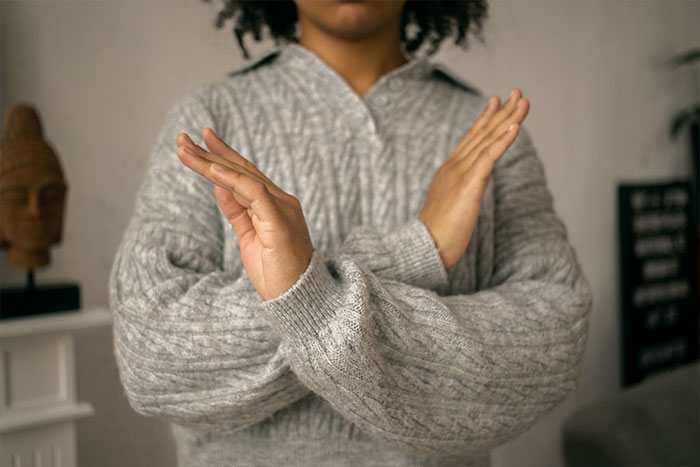
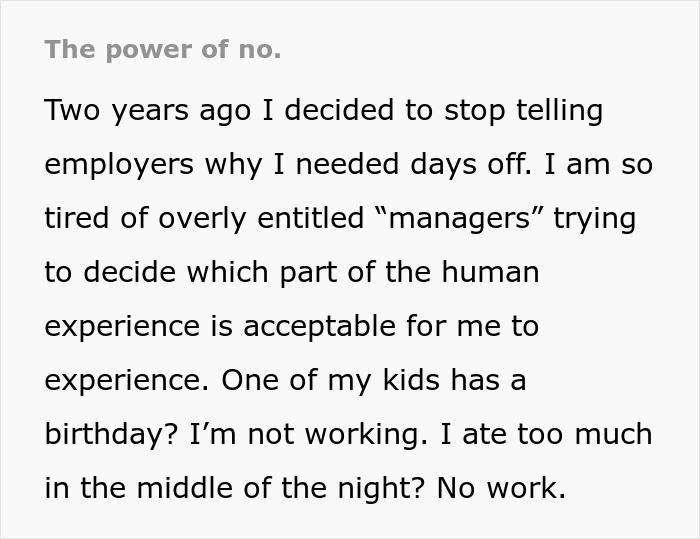
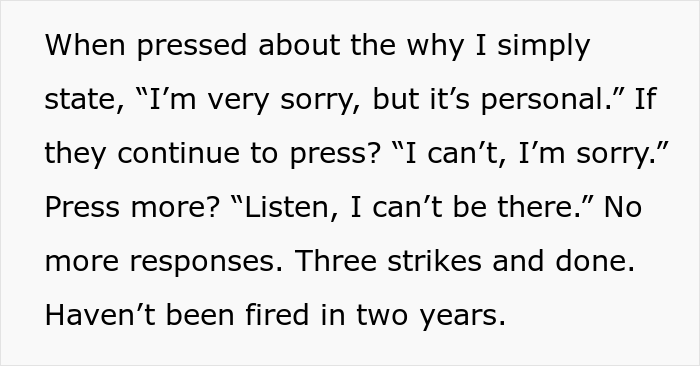

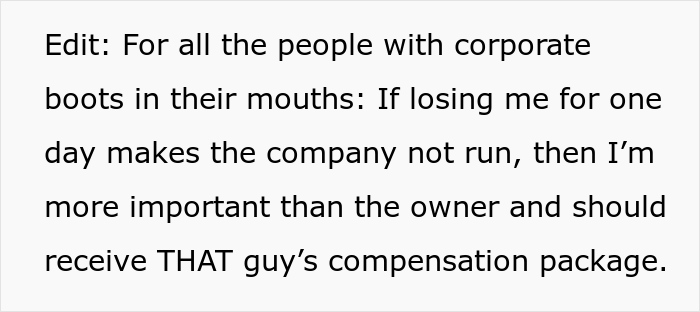
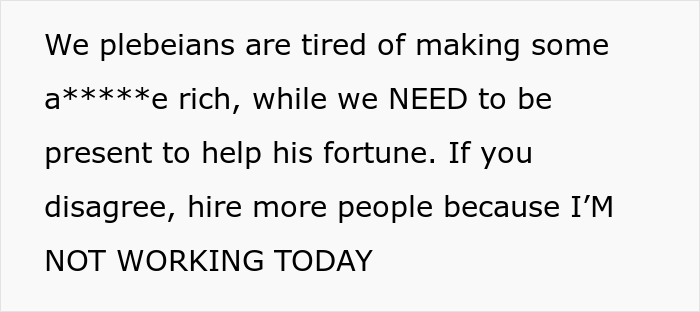


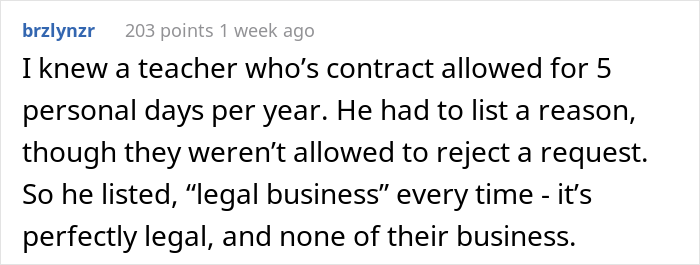
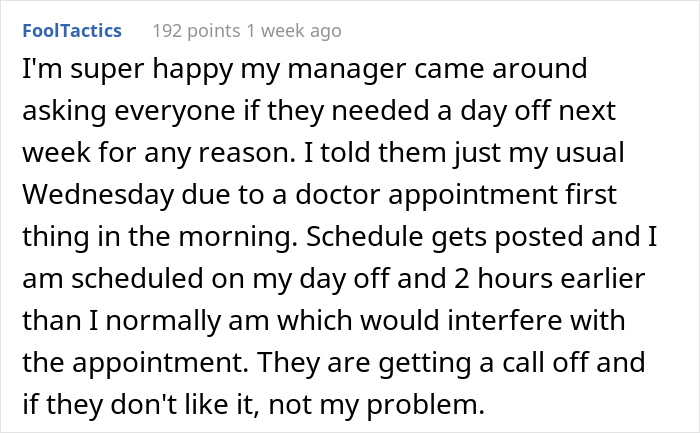
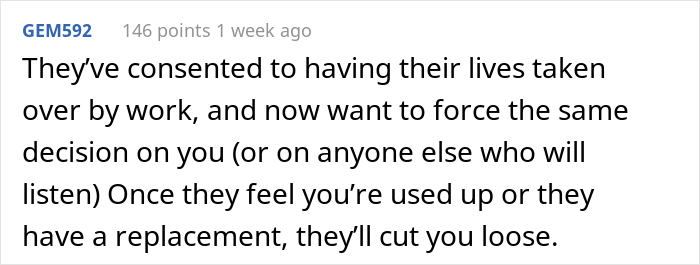

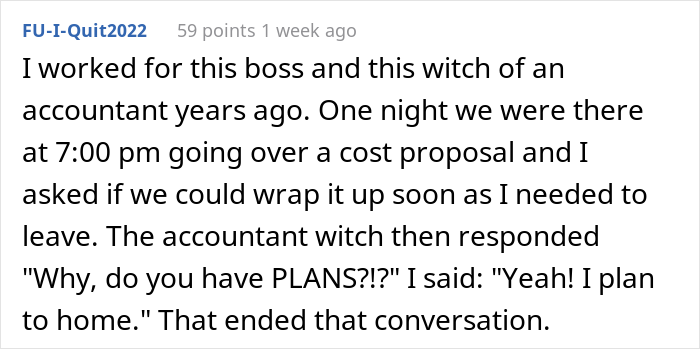

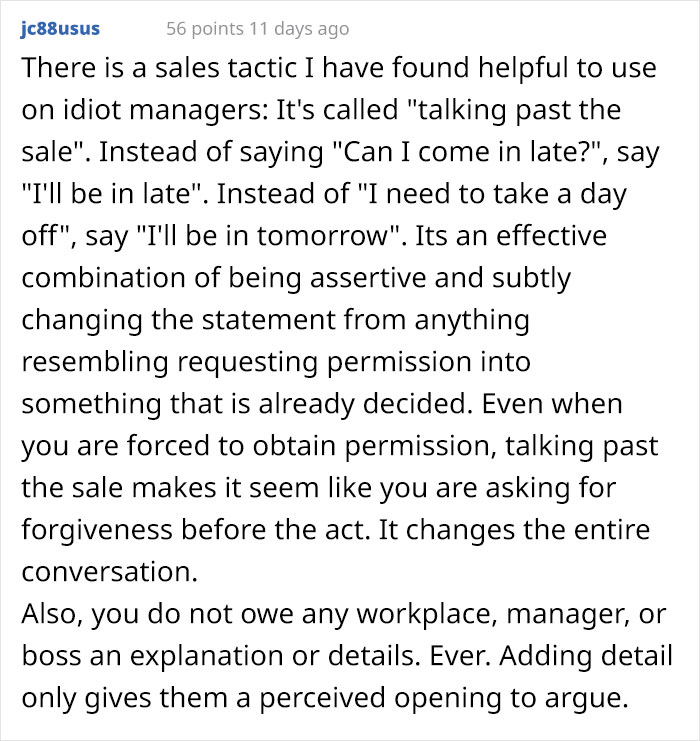

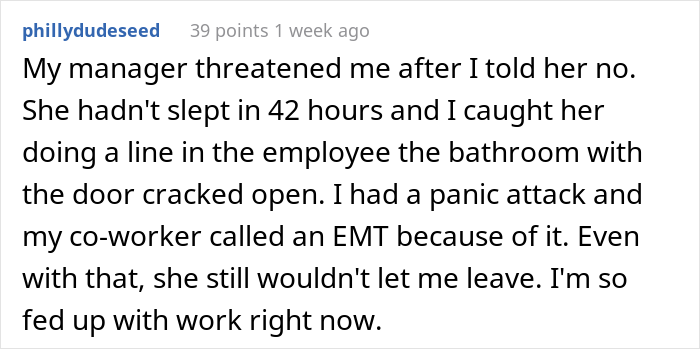
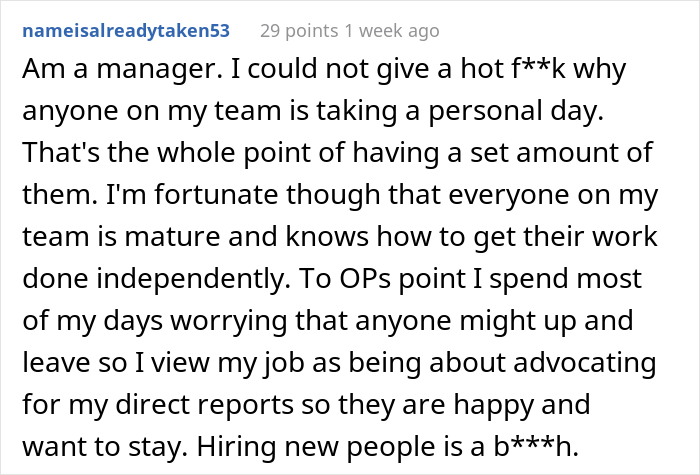


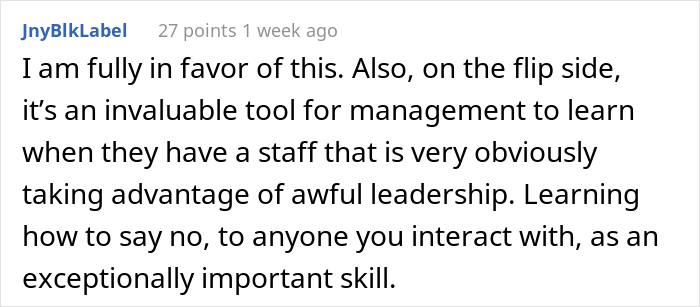




126
28